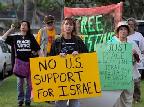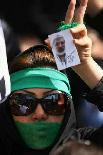New Politics Vol. XIII, No. 1, Whole Number 49
Summer 2010 (New Politics Vol. XIII, No. 1, Whole Number 49)
From the Editors
Letters
-
An exchange on M. Mandell’s review of Wayne Price’s The Abolition of the State: Bennett Muraskin, Jason Schulman, and Marvin Mandell
-
An exchange on Alan Aja’s review of Jacques E. Levy’s Cesar Chavez and Randy Shaw’s Beyond the Fields: Dan La Botz and Alan Aja
SPECIAL SECTION: A WORLD IN CRISIS
-
Introduction, Stephen R. Shalom and Joanne Landy
-
The View from Canada: Obama’s Foreign Policy, Derrick O’Keefe
-
Pakistan: An Exchange
-
Can the Left Become Relevant to Islamic Pakistan?, Pervez Hoodbhoy
-
Pakistan: The Myth of Civilizing War, Adaner Usmani
-
Palling Around with Terrorists: Obama and IsraelPalestine, Stephen R. Shalom
-
Darfur: The World’s Most Famous Humanitarian Disaster, Steven Fake and Kevin Funk
-
Foosball with the Devil: Haiti, Honduras, and Democracy in the Neoliberal Era, Adrienne Pine
-
Revolutionary Prefigurations: The Green Movement, Critical Solidarity, and the Struggle for Iran’s Future, Danny Postel
-
Iran: Reform and Revolution, Yassamine Mather
-
Green Is the New Green: Social Media and the PostElection Crisis in Iran, 2009, Negar Mottahedeh
Race and the Obama Era, Keeanga-Yamahita Taylor
China’s Opium Wars, Rossen Vassilev
Female Genital Cutting, Colonialism, and Women’s Liberation, Amy Littlefield
Moral Equivalence and the “Salvador Option”, Matt Carr
Sobriety and Its Discontents: American Politics in a Post-American World, John Kane
Phyllis Jacobson (1922-2010): A Personal and Political Tribute, Lynn Chancer
Dan La Botz, Ohio’s Socialist Party Candidate for the U.S. Senate
THEATER REVIEW
BOOK REVIEWS
-
Barry Finger, The Unliquidated Crisis of Capitalism, rev. of Chris Harman, Zombie Capitalism: Global Crisis and the Relevance of Marx
-
Paul Buhle, Anarchism Remembered, rev. of Chaim Weinberg, Forty Years in the Struggle
-
Bill Littlefield, Zirin’s Zinnish Look at the History of Sports, rev. of Dave Zirin, A People’s History of Sports in the United States
-
Matthew N. Lyons, Bringing the Elite to Jesus, rev. of Jeff Sharlet, The Family: the Secret Fundamentalism at the Heart of American Power
-
Christine L. Williams, The Counterrevolutionary from Arkansas, rev. of Nelson Lichtenstein, The Retail Revolution: How Wal-Mart Created a Brave New World of Business
-
George Fish, Chomsky, Anarchism, and Socialism, rev. of Noam Chomsky, Chomsky on Anarchism
-
Eric Schuster, Born on the 4th of July, rev. of Andrew M. Schocket, Founding Corporate Power in Early National Philadelphia
-
Carey Harrison, Baudelaire Between the Lines, rev. of Melvin Zimmerman, Baudelaire and Co.
-
Michael Wreszin, “The Piano Ain’t Got No Wrong Notes,” rev. of Robin D. G. Kelley, Thelonious Monk: the Life and Times of an American Original
-
Larry A. Greene, The Life and Times of Hubert Harrison, rev. of Jeffrey B. Perry, Hubert Harrison: The Voice of Harlem Radicalism, 18831918
-
Richard Franke, Peasants or Empire? rev. of Jan Douwe van der Ploeg, The New Peasantries: Struggles for Autonomy and Sustainability in an Era of Empire and Globalization
WORDS AND PICTURES
OBITUARY
In this issue:
By: Derrick O'Keefe

Canadian author Margaret Atwood famously described the border between our country and the United States as the world’s longest “one-way mirror.”
By: Pervez Hoodbhoy
The left has always been a marginal actor on Pakistan’s national scene. While this bald truth must be told, in no way do I wish to belittle the enormous sacrifices made by numerous progressive individuals, as well as small groups. They unionized industrial and railway workers, helped peasants organize against powerful landlords, inspired Pakistan’s minority provinces to demand their rights, set standards of writing and journalism, etc.
By: Adaner Usmani
It would hardly be an exaggeration to suggest that, today, in the baleful shadow of the Great War on Terror, one central site of intra-progressive discord has been the question of the broad Left’s relation to political and militant Islam.
By: Stephen R. Shalom

During the 2008 presidential campaign, Barack Obama was accused of palling around with terrorists.
This Republican canard was focused on the former Weatherperson, Bill Ayers, but also on Rashid Khalidi, the respected Palestinian-American scholar who had been a friend of Obama’s in Chicago.
By: Steven Fake, Kevin Funk
The emergence of Darfur as a cause célèbre in the West has been one of the more notable propaganda achievements in recent memory. Though the Darfur region of Sudan has been the scene of great human suffering, a death toll of perhaps 300,000 and a population of displaced persons numbering well over 2 million qualifies Darfur as serious but — regrettably — hardly unique for the scale of its violence in the first decade of the 21st century.
By: Adrienne Pine

From the perspective of Honduran and Honduranist scholars, the most common reference to Haiti is as a point of hemispheric comparison. Whether measuring GDP per capita, state legitimacy and citizens’ political tolerance, or corruption, the phrase “Honduras ranks last…after Haiti” seems to be de rigueur. This is no coincidence: the policies and structures that have effected extreme poverty and highly concentrated wealth in both places are very much connected.
By: Danny Postel
A year has now passed since the explosive appearance of Iran’s Green movement in June 2009. Suspecting malfeasance in the official tally of the country’s June 12 presidential election, millions of Iranians took to the streets. The historian Ervand Abrahamian, author of the classic Iran Between Two Revolutions, described the silent rally of June 15 at Azadi (Freedom) Square in Tehran (London Review of Books, 7/23/09):
By: Yassamine Mather
Recent news about Iran has been dominated by U.S. attempts to increase sanctions, and one could be forgiven for thinking the world hegemonic capitalist power is preparing war against a major nuclear power. The reality is far different: all the fuss is about a country where nine months of mass protests have not only weakened the state but also divided the ruling circles, making reconciliation at the top impossible.
By: Negar Mottahedeh

The Persian language blogosphere is rich, varied, and dynamic. Of the 100 million blogs registered around the world in 2005, 700,000 were Persian language, either inside Iran or in the diaspora. Of these, over 60,000 are updated frequently. With over 20 million Iranians connecting to the internet, and over 600,000 Iranians signed up on Facebook by the presidential election of the summer of 2009, the Iranian cyber community is by far the most dynamic such community in the Middle East, and one that is unambiguously diverse.
review
By: Barry Finger
This recent work by the late Chris Harman is an application of the “permanent arms economy” theory, a hallmark of the British Socialist Workers Party, to the current economic crisis. This analysis is borrowed in part from the American writer T.N. Vance who argued in the presses of the Independent Socialist League of the early 1950s that the much anticipated reversion to the “unliquidated” crisis conditions of the 1930s was averted at the close of World War II through an application of military Keynesianism.
By: Lynn Chancer

IT’S A STAPLE of American comedians to make fun of in-laws in general and mothers-in-law in particular. But, in my case and with no offense to Michael, I could have married my husband simply for his parents.
review
By: George Fish
For several years I worked closely with an anarchist youth collective in Indianapolis that ran a left-wing bookstore. While they were a bold, feisty group of determined activists (a welcome change from the timid and hidebound peace church "progressives" that dominate the left in Indianapolis) with whom I very much enjoyed working, I did find their anti-intellectualism disquieting.
By: Keeanga-Yamahtta Taylor
It has been more than a year since Barack Obama was inaugurated as the first African- American president of the United States. Despite the obvious historic significance of his election, Obama’s actions to date make it very doubtful that his presidency will alleviate the persisting conditions of racism, discrimination, and general inequality that continue to shape the experience of most African-Americans in the United States.






